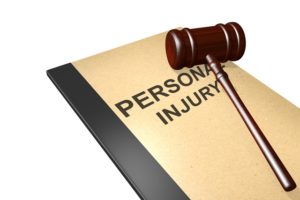May 1, 2021
Personal Injury Lawyer
 Assumption of risk is an affirmative defense within the law of torts that a defendant can raise in a negligence action. It refers to a legal doctrine in which an individual is barred from recovering damages involving an injury when the individual willingly presents themselves to a known danger. Plaintiffs within a case cannot seek damages if the plaintiff knew the condition that the individual was placing oneself in and has given full consent to do so, taking a risk regardless of the underlying knowledge of injury. This is primarily raised in premise liability cases, such as entering in an area that contains signs in which the risk of bodily harm and criminal consequences are shown.
Assumption of risk is an affirmative defense within the law of torts that a defendant can raise in a negligence action. It refers to a legal doctrine in which an individual is barred from recovering damages involving an injury when the individual willingly presents themselves to a known danger. Plaintiffs within a case cannot seek damages if the plaintiff knew the condition that the individual was placing oneself in and has given full consent to do so, taking a risk regardless of the underlying knowledge of injury. This is primarily raised in premise liability cases, such as entering in an area that contains signs in which the risk of bodily harm and criminal consequences are shown.
The defendant must display certain aspects to use the assumption of risk defense successfully. First, the plaintiff had to have knowledge of the risks involving the action. Additionally, the plaintiff would have willingly accepted the risk, particularly through agreement or implied with words or action. The premise behind this concept, incorporating these two aspects, would make it so the defendant does not owe any legal duty to the plaintiff, meaning the duty element of negligence is not met, and ultimately making it so the plaintiff cannot recover for injuries caused by either risks inherent to the situation or the dangers brought about through defendant’s negligence.
It is the burden of the defendant to discover proof when it comes to determining an assumption of risk defense, being responsible for showing that the danger was vividly apparent, or the conduct was fundamentally dangerous. Following the standard of proof is the preponderance of the evidence, demonstrating that it is more likely than unlikely to be true.
Express Assumption of Risk and Implied Assumption of Risk
Express assumption of risk and implied assumption of risk are two contentions that align with the notion of known-hazardous conditions and willingness to participate in the dangerous action.
According to Nevada Jury Instruction 4.17, an express assumption of risk is defined as the plaintiff assuming the risk of injury by specifically agreeing with the defendant that the plaintiff would not hold the defendant responsible if an injury should be caused by the known risk. It is conducted before an event occurred in which the plaintiff was injured because of a known risk, explicitly accepting the risk, and therefore, making it so the plaintiff may not recover damages from the defendant for that injury. For example, written agreements such as waivers fall under this category. The responsibility of the jury when presented with the facts is to review the relevant documents that they will examine to reach a verdict.
Contrasting with express assumption of risk, implied assumption of risk is inferred through words and conduct. Plaintiff would have had to have a complete understanding of the possible harm that could present itself, consenting to the risks under those circumstances. Implied assumption of risk is more abstract when rendering a decision, thus making it harder to determine if the assumption of risk is prevalent. The jury would have to examine the existing facts and circumstances of the situation, making it more difficult for the defendant to clearly and distinctly reveal that the plaintiff knew the risks prior to the action.
When it comes to personal injury cases and the assumption of risk, it may be useful to consult with an experienced personal injury lawyer. The details of these cases are sometimes abstract and difficult to do without the help of good legal counsel.
